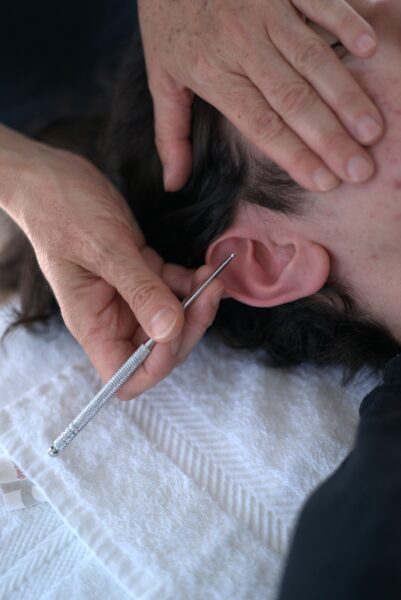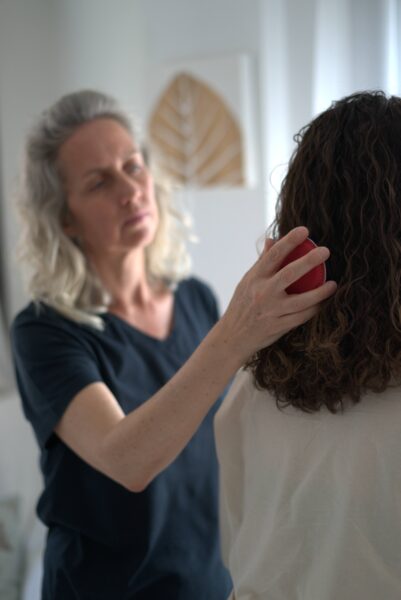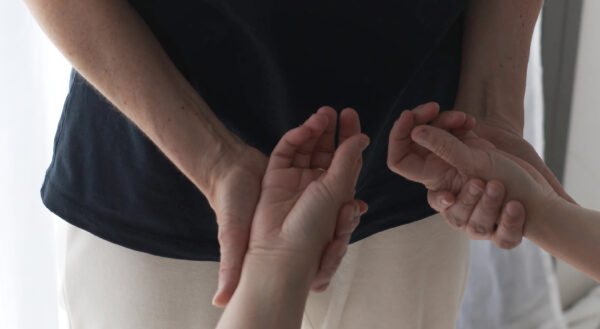Kinesiology, like other alternative therapies, focuses on stimulating the body's systems to promote well-being before addressing specific ailments.
In kinesiology, it is common for the practitioner to ask questions to the client during the muscle testing process. However, it is not always necessary for the client to respond verbally, as in kinesiology, the body can resonate with the thoughts and emotions of the individual.
Muscle Testing (AR, Arm Reflex)
In kinesiology, muscle testing is used as a form of communication with the body. The kinesiology practitioner stretches muscle chains and observes how the body of the individual being tested responds. If a chain shortens, it is interpreted as an indication of a stress response or imbalance in relation to the specific question or stimulus. This muscle reaction is the same in the face of challenging situations or strong emotions.
Thus, it’s believed that the client’s body can respond and communicate through muscle responses without requiring an oral reply. This connection between the body, mind, and emotions is a fundamental aspect of kinesiology and holistic therapies.
Adapting to Each Individual’s Communication
It is important to note that kinesiology can vary in its techniques depending on the training and approach of the practitioner. Some may prefer more verbal communication, while others may focus on the muscle and energetic response of the body. Personally, I respect and accept each person's decision, without pressuring those who, due to shyness or other reasons, may not wish or be able to provide an oral response. Based on my experience, information shared in different ways remains equally effective. It's about adapting the session to the needs of each individual, whether they need to express themselves verbally or prefer to reflect and process internally.
The role of the natural therapies professional
The holistic advisor is not here to judge the individual but to offer full support in their recovery process. They have the responsibility to provide complete attention and non-judgmental listening to the person seeking help. Their main goal is to understand and address individual needs comprehensively, taking into consideration the physical, mental, emotional, and spiritual aspects.
Their focus lies in understanding that all aspects of a person are interconnected and that addressing them holistically can promote overall balance and well-being.
By creating a safe and welcoming space, free of judgment, the professional enables the client to feel free to express themselves and explore their challenges and concerns. This fosters a relationship of trust and openness, which in turn allows for more effective and meaningful work in the recovery process.
An individual should seek complementary therapy voluntarily with the desire to improve their condition. Likewise, it’s important for them to feel comfortable and trust the relationship with the professional to fully benefit from the sessions. I delve into this topic in more detail in the RELATIONSHIP BETWEEN THERAPIST AND CLIENT section. LA RELACION ENTRE TERAPEUTA Y CLIENTE.




